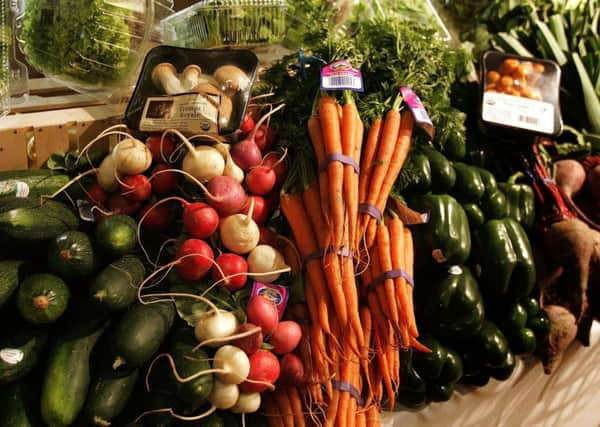Producers must make most of demand for organic food


He believed that with the economy now in better heart and along with consumers changing their shopping habits, there was now a growing demand for organic food. As far as organic producers were concerned this translated into greater business opportunities.
“The organic market fell by 12 per cent during the economic downturn, but that was thanks to the reaction of retailers delisting product, and not because consumer appetite for organic had disappeared.”
Advertisement
Hide AdAdvertisement
Hide AdSince 2012 he said consumers had changed their habits and were now buying from smaller retailers and farm shops.
Moore wanted growers to have confidence that long-term consumer trends were going to help the sector and pointed out the UK had the largest potential for growth in organics, both in terms of access and for increased consumption.
The challenge now, he said, was for the sector to address issues of availability. This meant encouraging more producers to convert to organic. “Growth will come in increasing the repertoire of products.”
Andrew Saunders of the Waitrose Farming Partnership agreed that being able to meet demand for organic food had to be a focus for the entire sector.
As an example, Saunders said that of the 12,600 hectares of organic wheat grown in the UK each year, Waitrose alone needed 41 per cent in order to satisfy customer demand.
